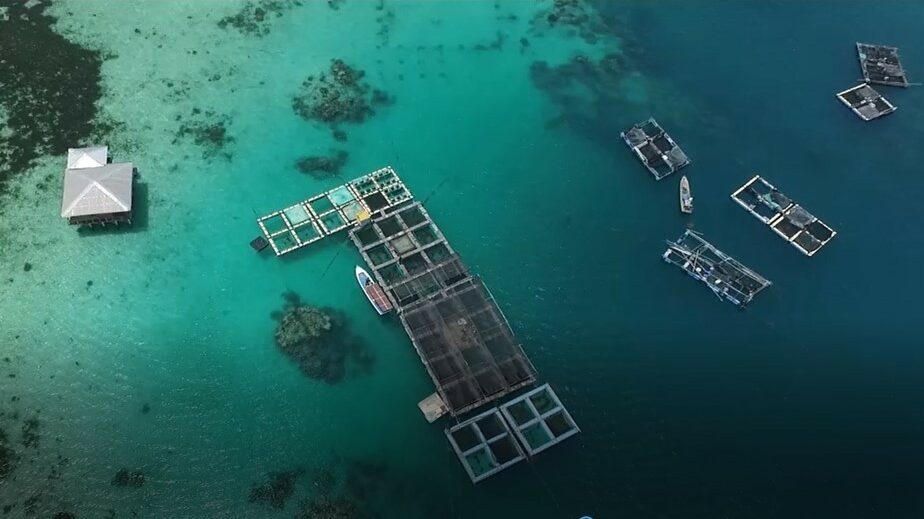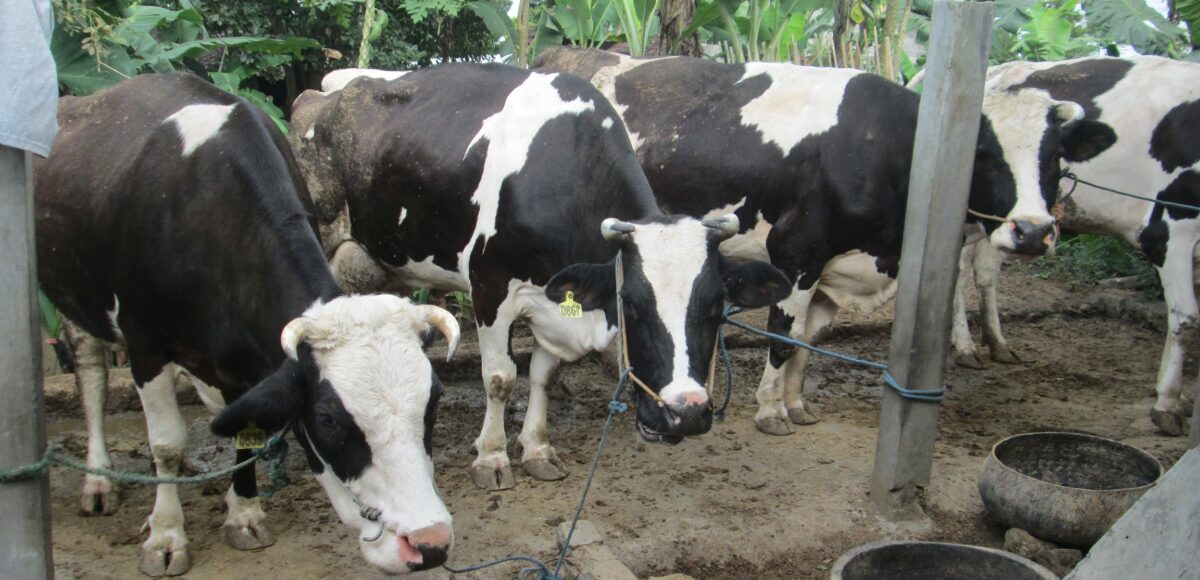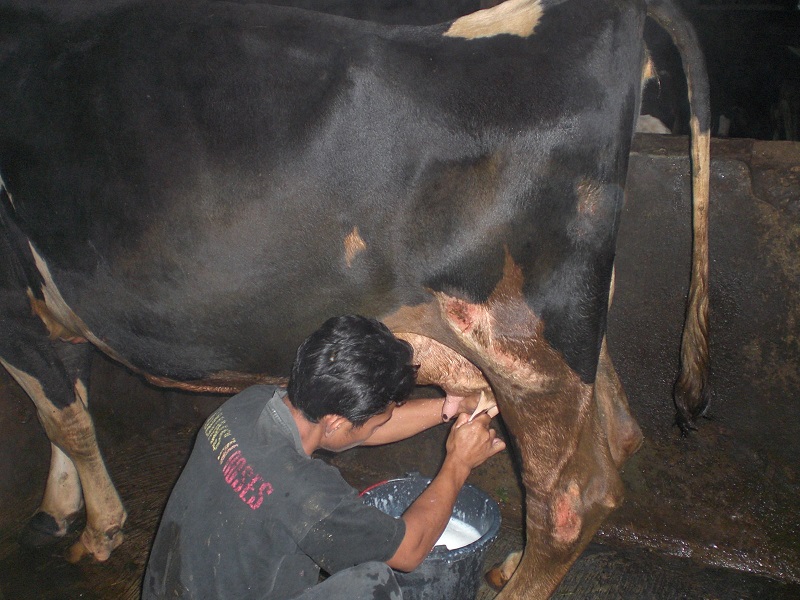In this project, international scientists of at least ten different disciplines, ranging from computer scientists to environmental scientists to social scientists to veterinarians, will collaborate together with industry..
The project is structured as follows: three topic lines (decision support, dairy data collection, and fish data collection) are combined with five disciplines (economic efficiency, environmental sustainability, system infrastructure, uptake & social system, data & algorithms). Nine PhD students are executing the work.
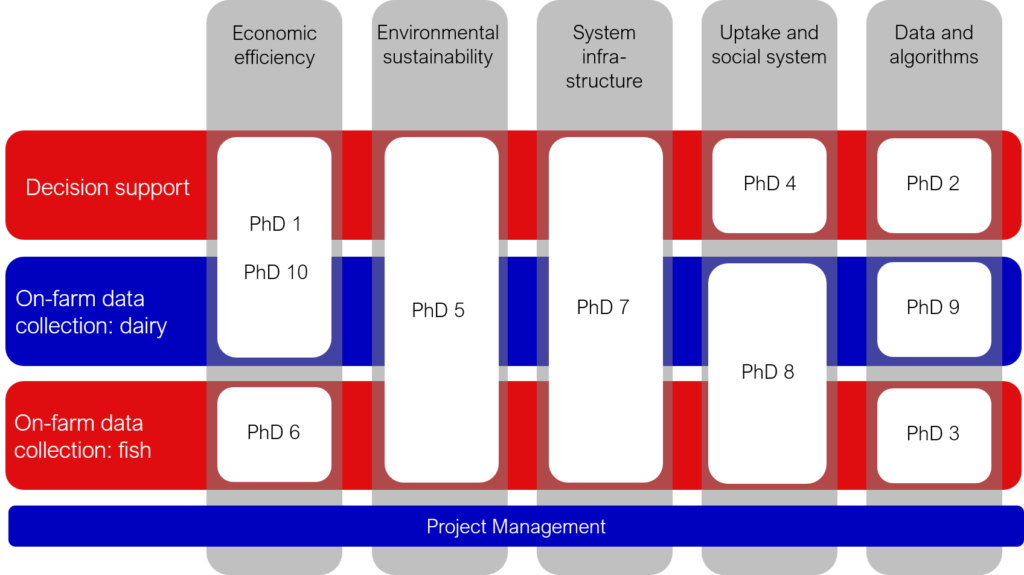
Topics
Topic 1: Decision support. Developing countries, especially the smaller farms in rural areas, hardly have access to veterinary services. Consequently, they lack means for a good diagnosis and an appropriate treatment in case of disease. As a result, farmers often use the medication they happen to have, often antimicrobials. Besides human health problems (antimicrobial resistance) this also leads to rejection of Indonesian food products for export. SMART farming technologies could potentially make veterinary support available from a distance, e.g. via smart phones.
Topic 2: On-farm data collection: dairy. Although dairy farming in Indonesia is growing, with currently over 500,000 dairy cattle, farms are mostly small-scale (i.e. < 10 cows). They are of increasing importance for the Indonesian society with regard to human nutrition and its economic impact in the rural communities. However, milk quality and animal health are bottlenecks for further growth of the dairy sector and potentially also a concern with regard to public health. Collecting data on the farm and storing them in a database, using SMART systems, is expected to be of great value for the effectivity of the Indonesian veterinary authorities and, especially when combined with topic 1: decision support, can help veterinarians and farmers to improve the health of dairy cattle and the quality of milk.
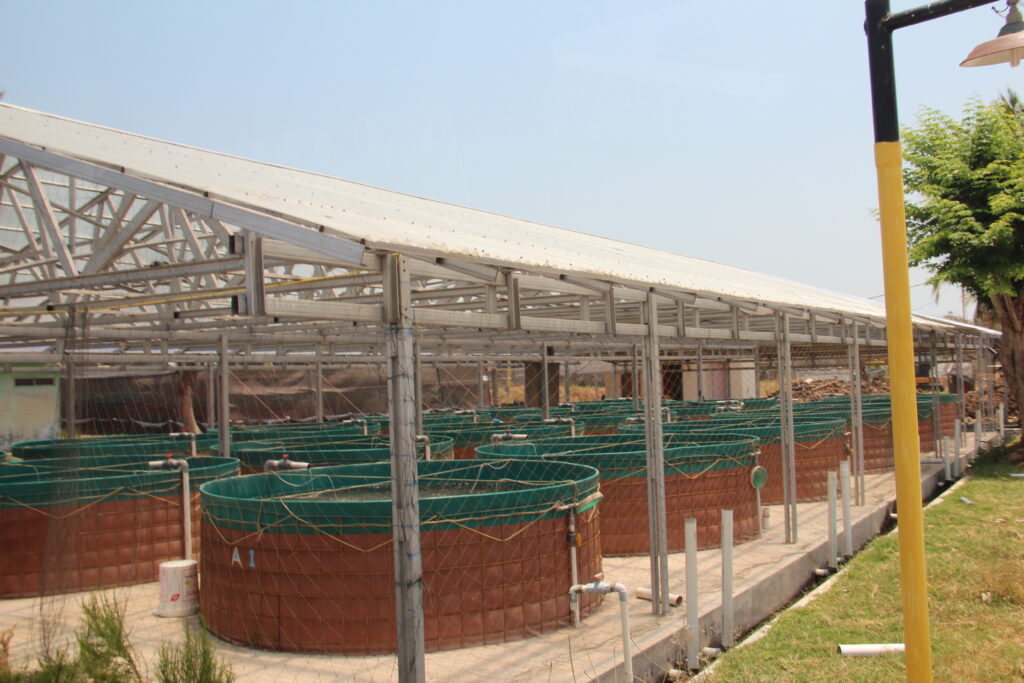
Topic 3: On-farm data collection: fish. Seafood, obtained through fisheries or aquaculture, is an essential part of the human diet, contributing to food security. As capture fisheries reaches their maximum, the growing demand for seafood can only be fulfilled through aquaculture. Producing this seafood in a sustainable way is challenging, as low efficiencies increase the environmental burden of aquaculture and low yields are a threat to the sector’s sustainability. Use of water quality sensors and feeding systems, linked to self-learning systems, will help farmers to operate within the carrying capacity of their farm system, and allow companies and governments to guide local and regional aquaculture development.
Disciplinary’s
Disciplinary line 1: Economic efficiency. This line will evaluate the expected economic improvement after the implementation of the proposed SMART farming applications. Moreover, the total costs and benefits of implementing a system infrastructure is are supplied to authorities to support them in investment decisions.
Disciplinary line 2: Environmental sustainability. In this disciplinary line consequential life cycle assessment models will be used, so the consequences of changes in production systems on other sectors in agriculture can be visualized. As feed-food competition is an important issue, it will be included using a Land Use Ratio (LUR). By using this harmonized approach, the environmental sustainability of animal proteins from different sources can be compared.
Disciplinary line 3: System infrastructure. One of the key elements in this project is the system infrastructure and the underlying database. The software architecture provides the gross-level design and quality of the system. Research focusses on the technical demands of such a system as well as its human demands, which need to comply with the current Indonesian situation. The SMART technologies will be embedded in and adjusted to farms an farming systems.
Disciplinary line 4: Uptake and social aspects. To bring SMART farming forward, the introduction and adoption of novel/innovative information and communication technologies is important. In the past many new developments have never been fully implemented, because uptake was slow or suboptimal. We will investigate the position of the stakeholders in the system and incorporate them in the project, as their involvement is important in the development and uptake of a SMART technologies.
Disciplinary line 5: Data and algorithms. Data and algorithm disciplinary expertise will be required at two levels: the farm level and the meta level (like region or province) At farm level, data and algorithms can be used for disease detection. At the meta level, the technology allows to 1) signal anomalies that might require intervention (e.g. a sudden change in quality of milk or fish); 2) be able to identify the cause of the anomaly; and 3) be able to communicate and monitor useful interventions to stakeholders and farmers.
